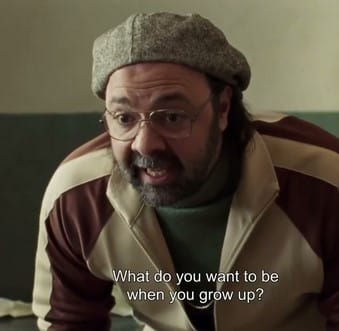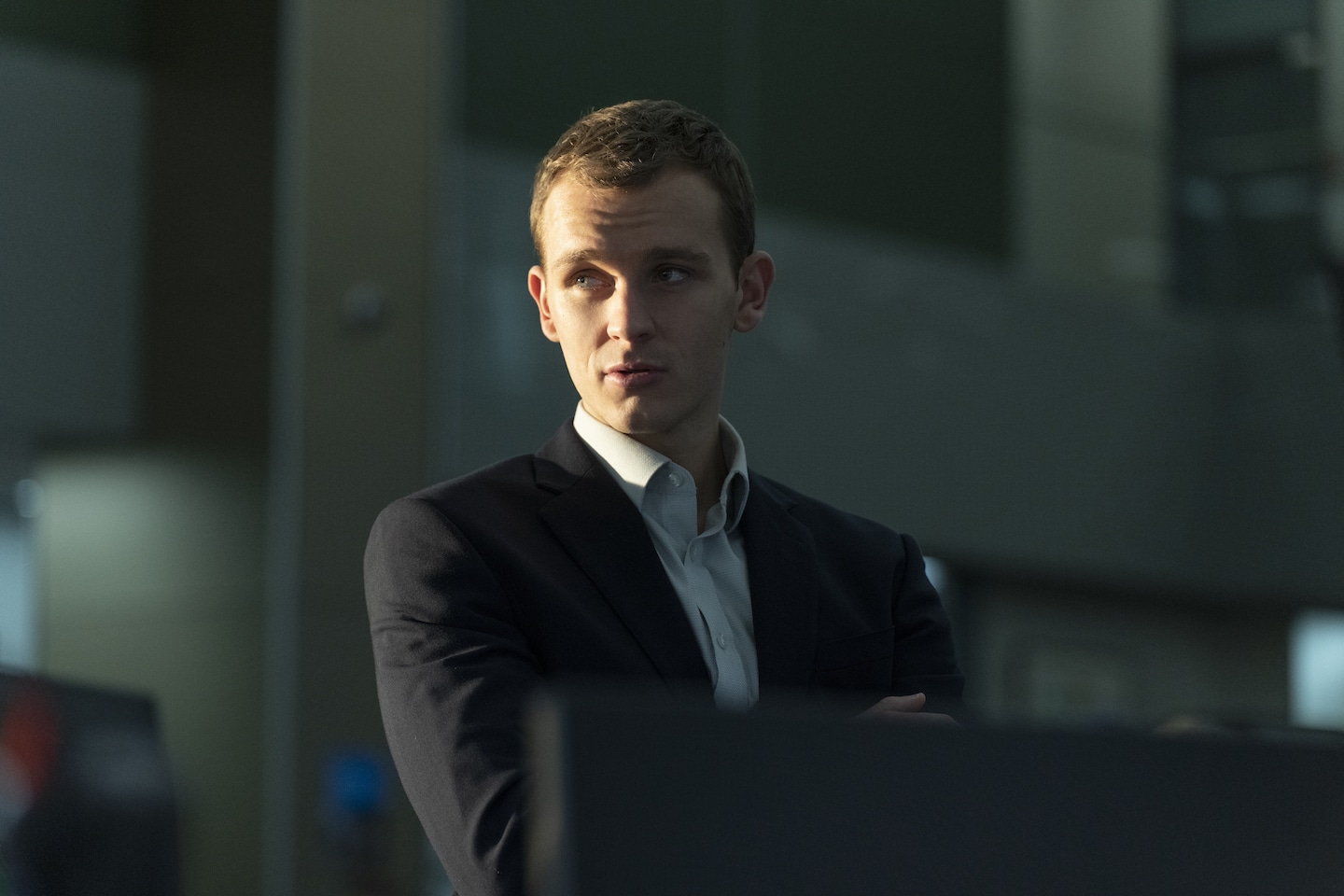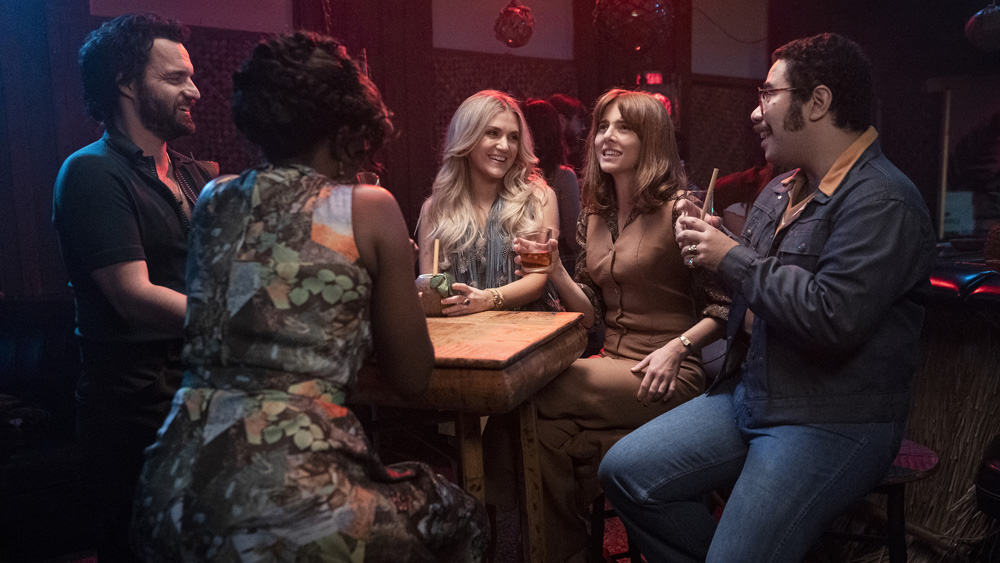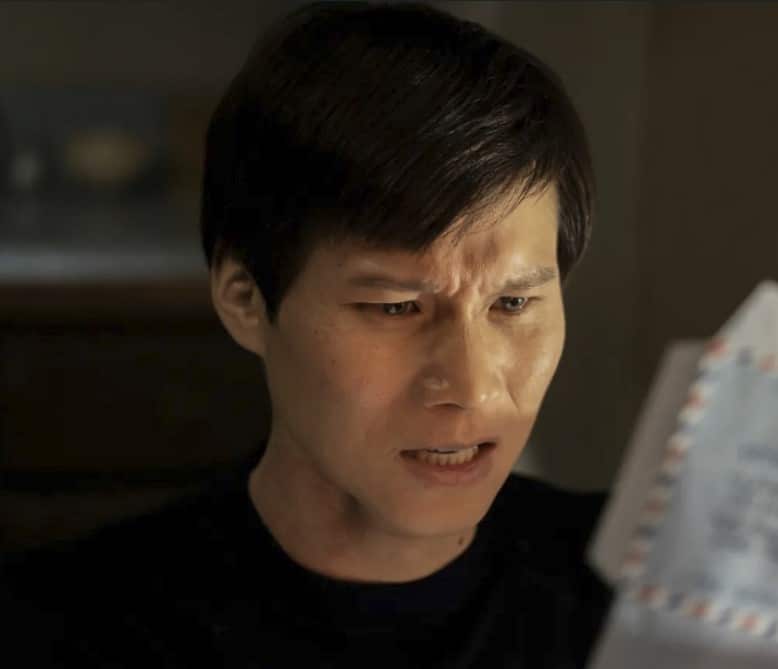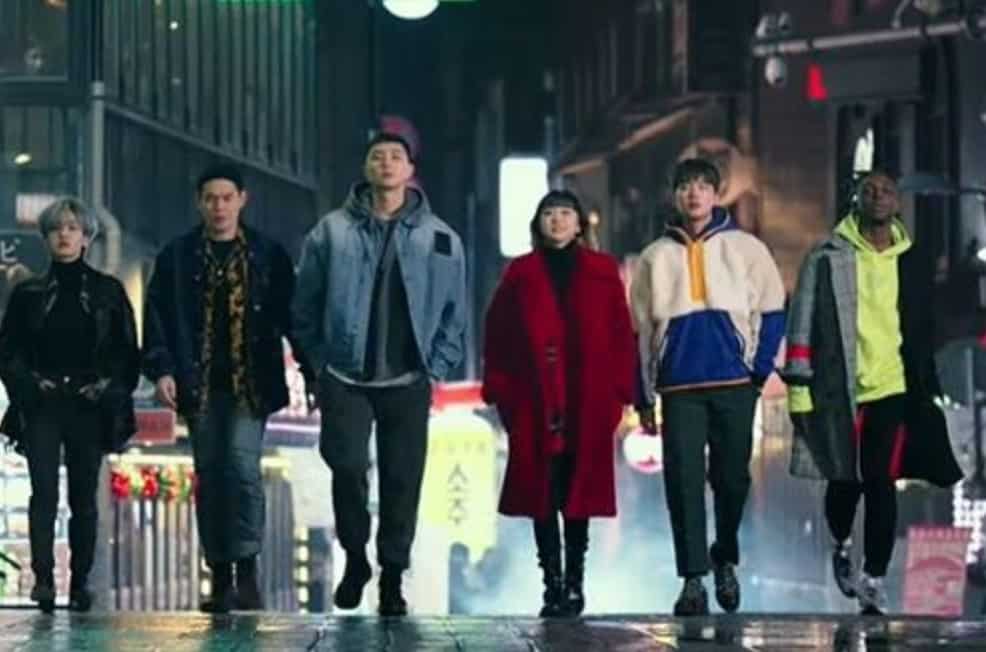Watercooler Pick

Station Eleven
- Series
- Where to Find It: https://play.hbomax.com/series/urn:hbo:series:GYZWoOQ6F9cLDCAEAAABP
- Rating: TV-MA
- Release Date: 2021
- Seasons: 1
- Episodes : 10
- Length: 45 minutes
Recommended by:
Share on social media
Find More Watercooler Picks
A mutated flu kills off nearly all of humanity. Twenty years later, the few survivors try to revive art and civilization in a post-civilized world.
The protagonist of Episode 1 is Jeevan Chaudhary, brilliantly portrayed by Himesh Patel (EastEnders, Yesterday, Tenet). Created by writer Patrick Somerville (Maniac, The Leftovers) and directed by Hiro Murai (Atlanta), based on the spectacularly good 2014 novel of the same name by Emily St. John Mandel (The Glass Hotel).
If there was ever a moment to watch a particular episode of television, that episode is the premiere of Station Eleven, and that time is right now—as in today, asap. It might save your life. Literally.
The full season will ultimately toggle among a few time periods, from back story to decades post-pandemic when humans are creating a new society that evokes the Talking Heads’ “Nothing but Flowers.” But first, Episode 1 takes place mostly during a single evening that might as well be tonight in the real world—Saturday, December 18, 2021: the confluence of the delta variant’s lethality with omicron’s transmissibility and vaccine resistance is creating widespread outbreaks that have come out of nowhere, including in fully vaccinated populations, leading to sudden closures of schools, universities, restaurants, Broadway shows, even (gasp) NFL games; borders are closing, hospitals are filling.
Station Eleven opens on a night that looks like tonight, right before Christmas, in a Chicago theater. On the stage, the lead of King Lear staggers, fighting for breath. The audience can’t tell if this man is acting or dying, but from the middle of a middle row, underemployed Jeevan Chaudhary recognizes genuine physical distress; as he later admits, maybe he wasn’t the first to realize what was going on, but was simply the first who stood up. Jeevan rushes to the stage, even though he doesn’t really know how to help, and to no avail. Just because you want to help doesn’t mean you can.
 In the chaos following this shocking death, Jeevan finds himself escorting home the play’s child actor Kirsten (Matilda Lawler), a precocious eight-year-old whose penetrating gaze will be familiar to anyone who has ever confronted a schoolkid who knows that you’re full of crap. Jeevan speaks to his sister who works in a suddenly overwhelmed hospital, and Siya shares dire warnings about this mutated flu. No one else seems to be answering their phones; at Kirsten’s house, no one answers the door.
In the chaos following this shocking death, Jeevan finds himself escorting home the play’s child actor Kirsten (Matilda Lawler), a precocious eight-year-old whose penetrating gaze will be familiar to anyone who has ever confronted a schoolkid who knows that you’re full of crap. Jeevan speaks to his sister who works in a suddenly overwhelmed hospital, and Siya shares dire warnings about this mutated flu. No one else seems to be answering their phones; at Kirsten’s house, no one answers the door.
You see where all this is going. The drumbeat of portents is constant and ominous, as is the actual drumbeat of the anxiety-inducing score, punctuated with background coughing and sirens, as well as cuts from the present-tense scene to static images of what these locales will look like in the future: overgrown with weeds, no sign of people.
In today’s era of Succession TV, in the long anti-hero shadows of The Sopranos and Mad Men, the small screen is often populated with deliberately unlikeable characters; even the children are sometimes hate-able. So it seems refreshingly old-fashioned that Station Eleven’s characters have been constructed to be maximally sympathetic—these are all aggressively likable people in a horrible predicament. On the other hand, this production does share with its contemporaries some tendencies toward mild bloat—scenes that take a few beats longer than necessary, pauses that are overly pregnant.
 Despite the dour predicament of the premise, and the relentless intensification of tension, Station Eleven is definitely not a grim show, and nowhere near the horror genre. Death is suggested, but not on display; death is in the future, then in the past, but rarely in the moment on the screen. There’s a strong undercurrent of hope, a clear faith in humanity, and even a few instances of laugh-out-loud humor amid the poignant moments of dire prognosis, whose obvious lesson is the motif that begins in the opening scene: be the first one to stand up, even if you don’t know what you’re doing.
Despite the dour predicament of the premise, and the relentless intensification of tension, Station Eleven is definitely not a grim show, and nowhere near the horror genre. Death is suggested, but not on display; death is in the future, then in the past, but rarely in the moment on the screen. There’s a strong undercurrent of hope, a clear faith in humanity, and even a few instances of laugh-out-loud humor amid the poignant moments of dire prognosis, whose obvious lesson is the motif that begins in the opening scene: be the first one to stand up, even if you don’t know what you’re doing.
I watched this episode with my wife and teenaged children just after we canceled our holiday travel plans, and tonight’s party was postponed, and we disinvited my 81-year-old mother to dinner; these are all experiences we can live without, at least for a while, and it’s possible that we wouldn’t live with them. We have tickets for tomorrow’s matinee of a hit Broadway play, our first theater visit since we saw David Byrne’s American Utopia right before the pandemic, on a night when Spike Lee was in the house, directing the HBO film version. If tomorrow’s show does indeed go on—which is now questionable in an unprecedented way—our four seats will be empty. Instead we’ll be home, watching the next episodes of Station Eleven.
Stream Station Eleven here.
A stupendously prescient and relevant series opener with great acting and high production values. When I read the novel a half-decade ago, it felt like a wonderful work of science-fiction. Not anymore.
Anyone who for whatever reason hasn’t gotten vaccinated, or boosted, or won’t wear a mask or take commonsense precautions in perhaps the most infectious moment since the 14th century’s bubonic plague killed off one-third of Europe. Or anyone who’s vaxed and masked and wishes everyone else would get with the program. But probably not a great choice for those who’ve experienced close loss recently, and definitely not for little kids, not at this moment when the premise is too real, and too terrifying. There’s a harrowing scene of a roomful of masked children in hospital, being told by Siya that their parents are all getting really, really good treatment, an obvious lie that has the potential to be deeply unnerving for kids. I could barely take it myself.
Filming began in Chicago in early 2020 but production was quickly suspended for a year due to covid. Which makes this a show about life being interrupted by a pandemic that was in fact interrupted by a pandemic.
- Moods: enlighten me, give me hope, grip me, inspire me, stretch my mind, transport me
- Interests: conversation worthy, edgy, future and sci-fi, music, psychological drama

Chris Pavone



